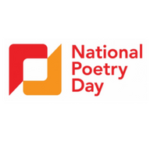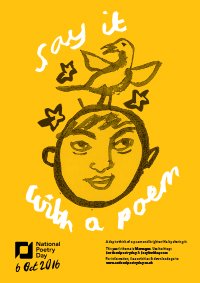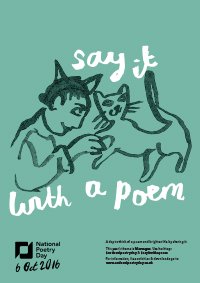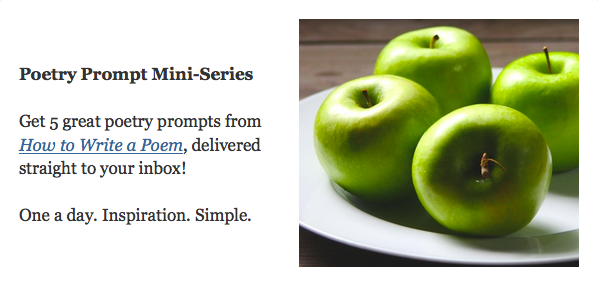This week, I’m completing an online course, William Wordsworth: Poetry, People, and Place. Offered by Lancaster University in partnership with the Wordsworth Trust, the course has submersed me in Wordsworth’s poetry for the past three weeks. I’ve analyzed several of his poems, listened to academic experts, learned about manuscripts and how it was only in the Romantic period that writers and poets began to hold on to the various drafts, written short essays for critique by other participants, assembled and reassembled poems, and studied how the geography of the Lake District influenced Wordsworth.
If I extrapolate from the number of comments, I would guess that up to a thousand of us are taking this course, and from all over the world. Wordsworth in particular and British poetry in general has a sizable fan base. And it’s no surprise that poetry is vitally important in Britain.

Poetry is indeed serious business in Britain. London Transport even posts poems on the Underground, or Tube.
Since high school, British literature has been one of my great loves. In college, I was allowed to take two semesters of English lit in place of the required American literature courses for sophomores. I read a considerable amount of English poetry as my business career grew to include speechwriting as a major component.

I was in Britain during 2015’s U.K.’s National Poetry Month and National Poetry Day. It was a big deal. I learned that many of the country’s newspapers still publish poems (most U.S. newspapers stopped the practice after the World War II years). Poetry is widely covered as news. A special all-poetry book festival and sale is held. Poetry prizes are announced (the American poet Claudia Rankine won one of Forward Poetry Prizes last October). Activities are held all over London and Britain, and London’s Southbank Centre, on the south bank of the Thames and near the Waterloo train and Tube stations, serves as a major focal point for poetry activities. The Centre is also home to the National Theatre and the Poetry Library, and has a bookstore filled with plays, fiction, and poetry.

National Poetry Day includes a multitude of activities—and you can participate wherever you are in the world. You can share a poem, write a poem with the Poetry School, browse an e-zine at the Poetry Library, join a Pass on a Poem group, and remember a poem with Poetry by Heart. You can listen to a poet at the Poetry Archive, and watch a poet on the Poetry Station. The Forward Arts Foundation also has a number of publications for individuals and schools. Follow National Poetry Day on Twitter (@PoetryDayUK), with #NationalPoetryDay as the hashtag.
So join us next week, as we help celebrate National Poetry Day.
Free National Poetry Day Book of 5 Ideas
Download Free 2016 National Poetry Day Booklet!
[Tweet “I just got a free book of poems, plus 5 poetry message ideas! #nationalpoetryday #free”]
Post by Glynn Young, author of the novels Dancing Priest and A Light Shining, and Poetry at Work.
__________________________
Click to get FREE 5-Prompt Mini-Series
- Longfellow’s “Paul Revere’s Ride”: Creating a National Legend - April 17, 2025
- Poets and Poems: Katie Kalisz and “Flu Season” - April 15, 2025
- Poets and Poems: Michelle Ortega and “When You Ask Me, Why Paris?” - April 10, 2025


Bethany says
I’m looking forward to both National Poetry Day and Random Acts of Poetry Day. I just dowloaded the free booklet and am loving that first idea about leaving a voicemail poem message. I’ve got to try it. And hey, maybe someone will leave me one in return – what fun!
ruth pallek says
Insanity
One must have the mind of…
no mind at all.
To play with death.
To terminate beauty.
To end a possibility.
With brutality, the knife of shame cuts down
and pierces the nest of safety
that no longer is
because
the word has been spoken that life has no value
and millions of flags fly to mark wordless cries
for children that will never feel
the beauty of the wind brushing against soft skin
or the blooming of a rose that is not
as fragile as their life once was.
How did the world become so ugly?